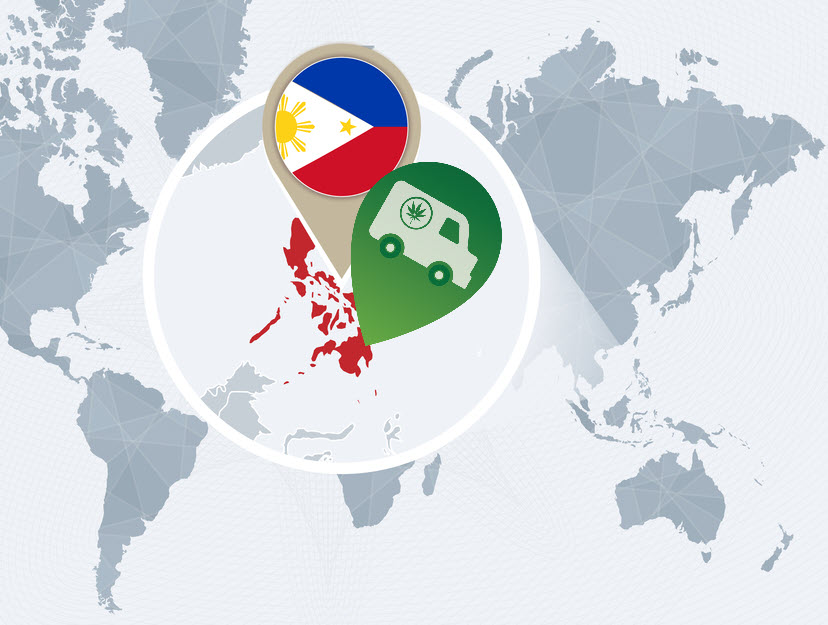
Is there hope for the Philippines to legalize marijuana now that anti-drug Zealot President Duterte is out?
Is there hope for marijuana legalization now that President Duterte, the king of the Philippines’ deadly drug war, is finally out of office?
June 30, 2016 marked the beginning of some of the darkest days in the Philippines.
On this day Rodrigo Roa Duterte, former President of the Philippines, took office. While he was known for his numerous political achievements, which he served for 7 terms as mayor of Davao, he was also notorious for his hatred of drugs.
And since the day he took office as President of the Philippines, thousands of unjustified deaths allegedly linked to the War on Drugs have occurred across the country. It was a dark, bloody time: more than 12,000 Filipinos are believed to have died as a result of the war, although around 2,500 of those deaths have been linked to local police authorities. Regardless, this campaign sparked a war that shouldn’t have cost any lives at all.
According to Duterte, illegal drugs are the biggest obstacle to the country’s survival and preventing it from succeeding as a nation. In his eyes, people who used illegal drugs, and those who peddled and sold them, were free play – they could be killed by anyone, even in broad daylight, without due process of law. Of course, it caught the attention of human rights observers worldwide, but he showed no remorse. People who used drugs, sold them, or even those with no evidence could be killed. It was a killing spree.
Under Duterte’s tenure, there was no way a bill legalizing medical marijuana would move forward — even if his own ex-wife reportedly used it to treat breast cancer. However, progressive lawmakers have been fighting to legalize medical marijuana in the Philippines since 2014. They attempted to introduce a bill into Congress, although very little progress was made, especially when Duterte took over the presidency.
But in 2017 something surprising happened: President Duterte’s spokesman said he was open to bills legalizing medical marijuana, leading to the third reading of House Bill No. 6517, also known as the Philippine Compassionate Medical Cannabis Act. But there always seem to be roadblocks…. In 2019, the bill was blocked by the Senate when it appeared Duterte had a change of heart, saying he would not allow medical marijuana to be legalized in his day.
Yes, he tends to eat his words a lot.
Luckily, his term has just ended and the Philippines now has a new President in office: Ferdinand Marcos, Jr.
Marcos: Next in line
Ferdinand Marcos, Jr., also known as Bong Bong Marcos, is by no means a lesser evil: the Filipino people elected the son of former dictator Ferdinand Marcos, notorious for his ironclad rule in the country from 1965 to 1986, and imposed martial law on the Philippines , remembered by many as the Dark Ages. For fourteen years, the Marcos government got away with numerous human rights abuses, particularly against journalists who tried to speak out against the Marcos government.
And now his son is in power.
But when it comes to legalizing marijuana, he might just be the president we need.
There are rumors that he takes an open and liberal stance on drug use. We won’t know for sure because there’s no evidence at the moment, but if it’s true, it could be good news.
In addition, a Filipino actor named Robin Padilla, whose political name is Senator Robinhood Padilla, was also elected to power in the last election. A man with no political background, but could this Robinhood be the man who can finally help the Philippines with legal medical marijuana?
Sen. Padilla has been pushing for its legalization in recent weeks by submitting Senate Bill 230, which would encourage research into the uses of medicinal cannabis, train healthcare professionals on its use and help people in need, reports The Philippine Star . “The state should, exceptionally, allow the use of cannabis for compassionate purposes to promote the health and well-being of citizens who have a demonstrated need for it, while enacting the strictest regulations to ensure that abuse for casual use or for profit would be avoided.” ‘ Padilla said in the bill.
In addition, the bill states that medical marijuana, including products such as oil and capsules, but not raw cannabis, can be administered for “debilitating medical conditions of qualifying patients.” According to the bill, these conditions would include cancer, HIV/AIDS, sleep disorders, nausea, epilepsy, migraines and other conditions identified by the Department of Health.
These are small steps, but they are important.
Currently, it is fairly easy for people to get marijuana products illegally through the black market in the Philippines. There are also some NGOs and private entities that supply underground cannabis oil to those in need.
However, legalization is still an important step forward, as decriminalization would remove the penalties associated with their use, particularly for those who are ill and need them for themselves or their children. Legalization will also ensure fair pricing of pharmaceutical-grade cannabis for patients to use and ensure patients have a steady supply of the medicines they need.
Hopefully, this government will be the one that moves the Philippines forward and allows the country to be perhaps the next in Asia after Thailand to legalize marijuana.
PHILIPPINES CONTINUE WITH MMJ, READ MORE…

THE PHILIPPINES ARE HIGH IN MEDICAL MARIJUANA POTENTIAL!

Post a comment: